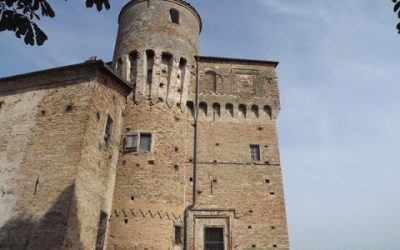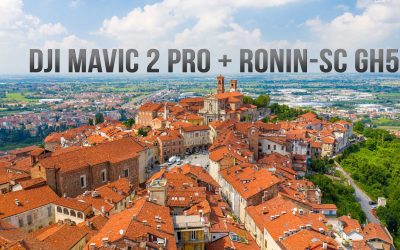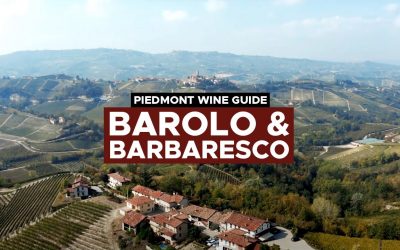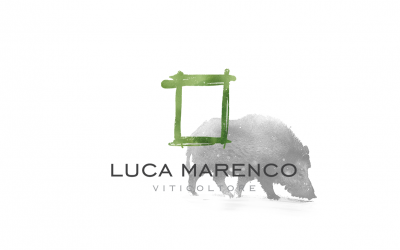Property purchase guide to buying a home in Piedmont, Italy
Thinking of buying a home in Piedmont, Italy?
Purchasing a home in Piedmont, Italy, offers a unique blend of urban sophistication and rustic tranquility. The region is a haven for those who appreciate the finer things in life, such as world-renowned wines like Barolo and Barbaresco, as well as delectable cuisine featuring local truffles and hazelnuts. Whether you’re drawn to the bustling cultural scene of Turin with its rich history and proximity to the Alps, or you’re more inclined towards the serene landscapes of the Langhe and Monferrato regions, Piedmont caters to a variety of lifestyle preferences. The property types range from modern apartments in the city to charming farmhouses surrounded by vineyards, providing options for every taste and budget.
However, buying a home in Piedmont is not just about choosing between city life and country living; it also involves navigating the Italian property market and legal system. Costs can vary significantly based on location and property type, and while generally more affordable than regions like Tuscany, it’s crucial to budget for additional expenses such as legal fees. Legal procedures in Italy can be complex and may differ from those in other countries, making it advisable to consult an English-speaking Italian lawyer to guide you through the process. Before taking the plunge, it’s recommended to spend some time in the region to truly understand what it has to offer and to thoroughly research the property market. After all, buying a home is a significant life decision, and you’ll want to make sure it aligns with your lifestyle and long-term goals.
Property purchase guide to buying a home in Piedmont, Italy
Buying a home in Piedmont, Italy is a desirable investment for both locals and international buyers. The region offers an array of property types – from urban apartments in Turin, traditional villas in Langhe, Roero and Monferrato, to ski lodges near the Alps in areas like Cuneo. The process of buying a home in Italy involves several steps, including selecting a property, negotiating a price, signing a preliminary contract, paying a deposit, and finally signing the deed of sale in the presence of a notary. Both residents and non-residents are allowed to buy property in Italy.
When purchasing a property in Piedmont, it’s crucial to consider property taxes, such as IMU (Imposta Municipale Unica), and potential income from renting out the property. Selling a property in Italy has its nuances, especially with the capital gains tax which applies to properties sold within five years of purchase. Buying a property can also be a step towards Italian residency, given you meet certain conditions. For accurate and up-to-date information, it’s recommended to consult with a real estate professional or a lawyer specialized in Italian real estate.
| Key Information | Description |
|---|---|
| Types of Properties | Urban apartments in Turin, traditional villas in Langhe and Roero, ski lodges near the Alps, among others. |
| Purchase Process | Includes selecting a property, negotiating a price, signing a preliminary contract, paying a deposit, and signing the deed of sale in the presence of a notary. |
| Buyer Eligibility | Both residents and non-residents are allowed to buy property in Italy. |
| Property Taxes | IMU (Imposta Municipale Unica) is a common property tax in Italy. Other taxes may apply depending on the nature of the property. |
| Renting Out Property | Property owners are generally allowed to rent out their property. However, income from rent may be subject to taxation. |
| Selling Property | A capital gains tax applies to properties sold within five years of purchase. |
| Path to Residency | Buying a property can contribute towards gaining Italian residency, subject to certain conditions. |
| Legal Assistance | It’s recommended to consult with a real estate professional or a lawyer specialized in Italian real estate for accurate and up-to-date information. |
Why choose Piedmont for buying a home?
Choosing Piedmont for buying a home is an excellent decision for a multitude of reasons. This beautiful region in northwest Italy is famous for its picturesque landscapes, rich history, diverse cultural experiences, and exquisite food and wine. Whether you are looking for a serene retirement home amidst the vineyards or a bustling city life in Turin, Piedmont offers something for everyone. The region’s affordability compared to other Italian regions like Tuscany or Lombardy also makes it an attractive proposition for property buyers. Moreover, the quality of life in Piedmont, marked by excellent healthcare, safety, and friendly communities, further enhances its appeal for home buyers.
What is the real estate market like in Piedmont?
The real estate market in Piedmont is quite diverse and flexible, offering a wide range of properties from luxury villas, historical country houses, apartments in artistic cities, to charming farmhouses amidst vineyards. The property prices vary greatly based on the location, size, and type of property. For instance, properties in major cities like Turin or in popular tourist destinations like the Langhe region might be priced higher than those in smaller towns or rural areas. However, in general, Piedmont’s property market is often seen as more reasonable and accessible compared to other Italian regions. It’s worth noting that the region’s property market is also influenced by international buyers, especially those interested in buying vacation homes or investment properties.
Best tips for buy a Home in Piedmont Region, Italy
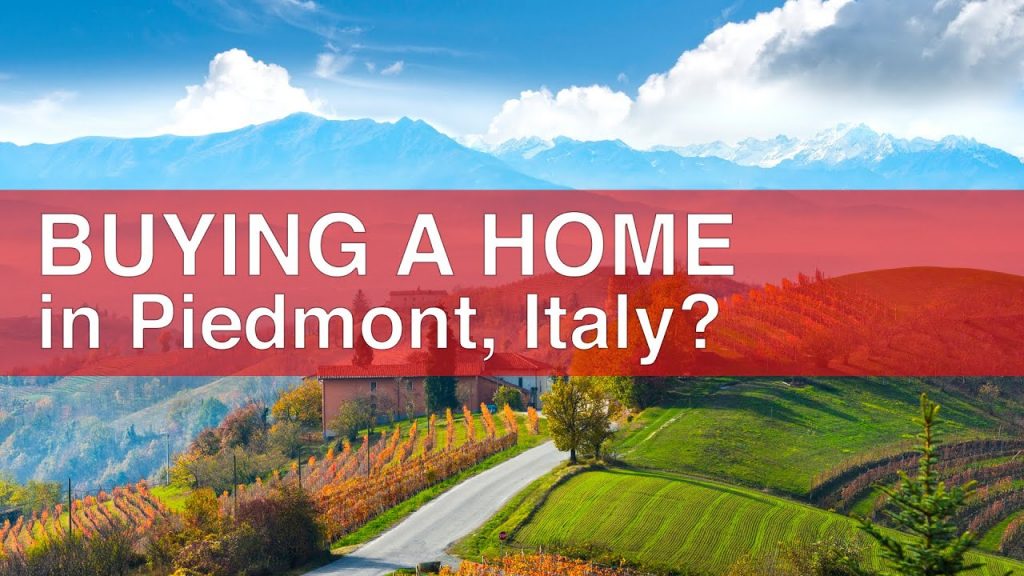
How does the property buying process work in Italy?
The property buying process in Italy is fairly structured and involves three main steps. Firstly, a preliminary contract or “compromesso” is signed by both parties, which outlines the terms and conditions of the sale. Usually, a deposit (typically around 10-30% of the total price) is paid at this stage. Next comes the signing of the final contract or “rogito”, usually in front of a Notary Public who ensures the legality of the process. The remaining balance is paid at this stage, and the property is officially transferred to the new owner. It’s essential to engage a trusted real estate agent and a legal advisor conversant in Italian property laws to navigate this process smoothly. Keep in mind that additional costs such as notary fees, taxes, and agency fees may also apply.
Do I need to be an Italian resident to buy a house in Piedmont?
No, you do not need to be an Italian resident to buy a property in Piedmont. Italy allows foreigners to buy property even if they do not reside in the country. However, non-residents may face some restrictions on buying agricultural land. It’s recommended to seek legal advice to understand all implications of buying property as a non-resident.
What kind of properties are available in Piedmont?
Piedmont offers a wide variety of properties to suit different tastes and budgets. From traditional Italian farmhouses and luxurious villas nestled amidst vineyards to modern apartments in vibrant cities like Turin, the choices are plentiful. If you prefer more rural or serene environments, you can opt for homes in the smaller villages or towns that dot the region.
What is the average price of properties in Piedmont?
The price of properties in Piedmont varies greatly depending on the type of property and its location. On average, property prices in Piedmont are more affordable compared to other popular regions in Italy. You could expect to pay anywhere from €1,000 to €2,500 per square meter for an apartment in Turin, while countryside homes could range from €50,000 for a small fixer-upper to over a million euros for large, renovated villas.
How can I search for properties in Piedmont?
You can search for properties in Piedmont through various channels. Online property portals and real estate websites are a good starting point. These platforms allow you to filter by location, property type, price range, and more. Working with a local real estate agent can also be beneficial as they have a deep understanding of the market and can provide personalized assistance.
What are the legal procedures for buying a home in Italy?
The legal procedures for buying a home in Italy involve several steps. Once a price is agreed upon, a preliminary contract is signed, and a deposit is paid. It’s crucial to have a notary who will verify the property’s legal status and ensure the contract complies with all legal requirements. After all checks are completed, the final deed of sale is signed in front of the notary, and the remaining balance is paid.
Can I buy a property in Italy remotely?
Yes, it’s possible to buy a property in Italy remotely. You can appoint a legal representative (like a lawyer) through a Power of Attorney to act on your behalf during the property buying process. They can sign the preliminary contract, make payments, and even represent you at the final deed signing.
How do mortgages work in Italy?
In Italy, mortgages are usually granted for up to 80% of the property’s purchase price or valuation (whichever is lower), with repayment periods up to 30 years. The exact terms depend on the lender’s policy and the buyer’s financial situation. Mortgages can be taken on a fixed or variable interest rate basis. It’s important to note that non-residents may face stricter lending conditions.
Can foreigners get a mortgage in Italy?
Yes, foreigners can get a mortgage in Italy. However, the conditions may be stricter for non-residents compared to Italian residents. Non-resident buyers may be required to make a larger down payment and show proof of stable income. Each bank has its own lending policies, so it’s recommended to explore options with multiple lenders.
What are the additional costs of buying a property in Italy (taxes, fees, etc.)?
In addition to the property price, buyers should factor in additional costs such as taxes, notary fees, and agency fees. The main taxes are land registry tax, cadastral tax, and mortgage tax. These taxes vary depending on whether the property is a primary residence or a second home. Notary fees are typically around 1-2% of the purchase price. Real estate agency fees, if applicable, are typically around 3% but can vary.
How long does the property buying process take in Italy?
The property buying process in Italy can take several months. The duration largely depends on the due diligence process and obtaining necessary approvals. After the preliminary contract is signed, it usually takes 2-4 months to reach the final deed signing. However, this timeline can vary based on individual circumstances.
What should I look for in a property in Piedmont?
When looking for a property in Piedmont, consider factors such as location, property condition, accessibility, proximity to amenities, and potential for future growth. If you’re planning to live in the property, also consider the lifestyle offered by the area — whether it aligns with your preferences for city living, countryside serenity, or vineyard vistas.
Are there any restrictions on owning property in Italy as a foreigner?
Foreigners are generally allowed to buy property in Italy without major restrictions. However, non-residents may face some limitations when it comes to buying agricultural land. It’s recommended to seek legal advice to understand any potential restrictions applicable to your specific circumstances.
How can I negotiate the price of a property in Piedmont?
Property prices in Piedmont, like anywhere else, can often be negotiated. It helps to research property values in the area to understand if the asking price is fair. If you’re working with a real estate agent, they can assist in the negotiation process. Remember, factors such as the property’s condition, the current market situation, and the seller’s urgency to sell can influence the negotiation process.
Do I need to hire a lawyer when buying a property in Italy?
While not mandatory, hiring a lawyer when buying property in Italy is highly recommended, especially for foreigners unfamiliar with the Italian property buying process. A lawyer can help ensure the transaction is legal, the property is free from liens, and your rights
What are the best areas in Piedmont to buy a house?
Piedmont is full of charming locales, each with its own appeal. Cities like Turin offer a vibrant urban lifestyle, while areas like Langhe and Roero are ideal for those seeking tranquillity amidst vineyards and rolling hills. For skiing and mountain activities, places near the Alps like Cuneo are perfect. The choice depends on your lifestyle preferences and budget.
What are the annual property taxes in Piedmont?
Annual property taxes in Italy, known as IMU (Imposta Municipale Unica), depend on the property’s cadastral value and the local council’s tax rate. Typically, the rate is between 0.2% to 0.76%. Non-residents owning a property in Italy are liable to pay this tax.
Can I rent out my property in Piedmont?
Yes, you can rent out your property in Piedmont. Whether as a long-term rental or a vacation rental, this can serve as a significant source of income, especially during the tourist season. However, rental income is subject to taxation, and local regulations must be complied with.
How does property insurance work in Italy?
Property insurance in Italy covers risks such as damage due to disasters, theft, and other unforeseen circumstances. It’s not mandatory but strongly recommended. The cost and conditions of property insurance depend on the property and the specific policy.
Can I sell my property in Piedmont without restrictions?
Yes, as a property owner in Italy, you can sell your property without significant restrictions. However, any capital gains from the sale might be subject to taxation.
What is the process of selling a property in Italy?
Selling a property in Italy involves several steps, similar to the buying process but in reverse. Once you find a buyer and agree on a price, a preliminary contract is signed, and a deposit is paid. After all necessary checks and paperwork are completed, the final deed of sale is signed in front of a notary.
What is the capital gain tax for selling property in Italy?
As of my last knowledge update in September 2021, Italy imposes a capital gains tax (known as Imposta di Registro) on the sale of a property if it’s sold within five years of purchase. The rate is typically 20% of the gain. After five years, the sale of the primary residence is tax-free, while for non-primary residences, the gain is added to the seller’s income for tax purposes.
Can I become a resident in Italy if I buy a property?
Yes, buying a property in Italy can be a step towards becoming a resident. However, residency isn’t automatically granted upon property purchase. You’d typically need to demonstrate that you live in Italy for more than 183 days per year and have stable income sources or sufficient financial resources. Other conditions might also apply.
For the most up-to-date and detailed information about buying property in Piedmont, I highly recommend reaching out to a real estate agent or a lawyer specialized in Italian real estate. Government websites, such as the Italian Revenue Agency (Agenzia delle Entrate), can also provide authoritative guidance.
Conclusion
In conclusion, buying a home in Piedmont, Italy, involves understanding the local real estate market, knowing the legal procedures, and evaluating various other factors like property prices, additional costs, taxes, and more. Each of these questions plays a crucial role in the home buying process, and detailed answers to these can help you make an informed decision. Always remember to seek professional advice and take your time to make the right decision for you and your family.
